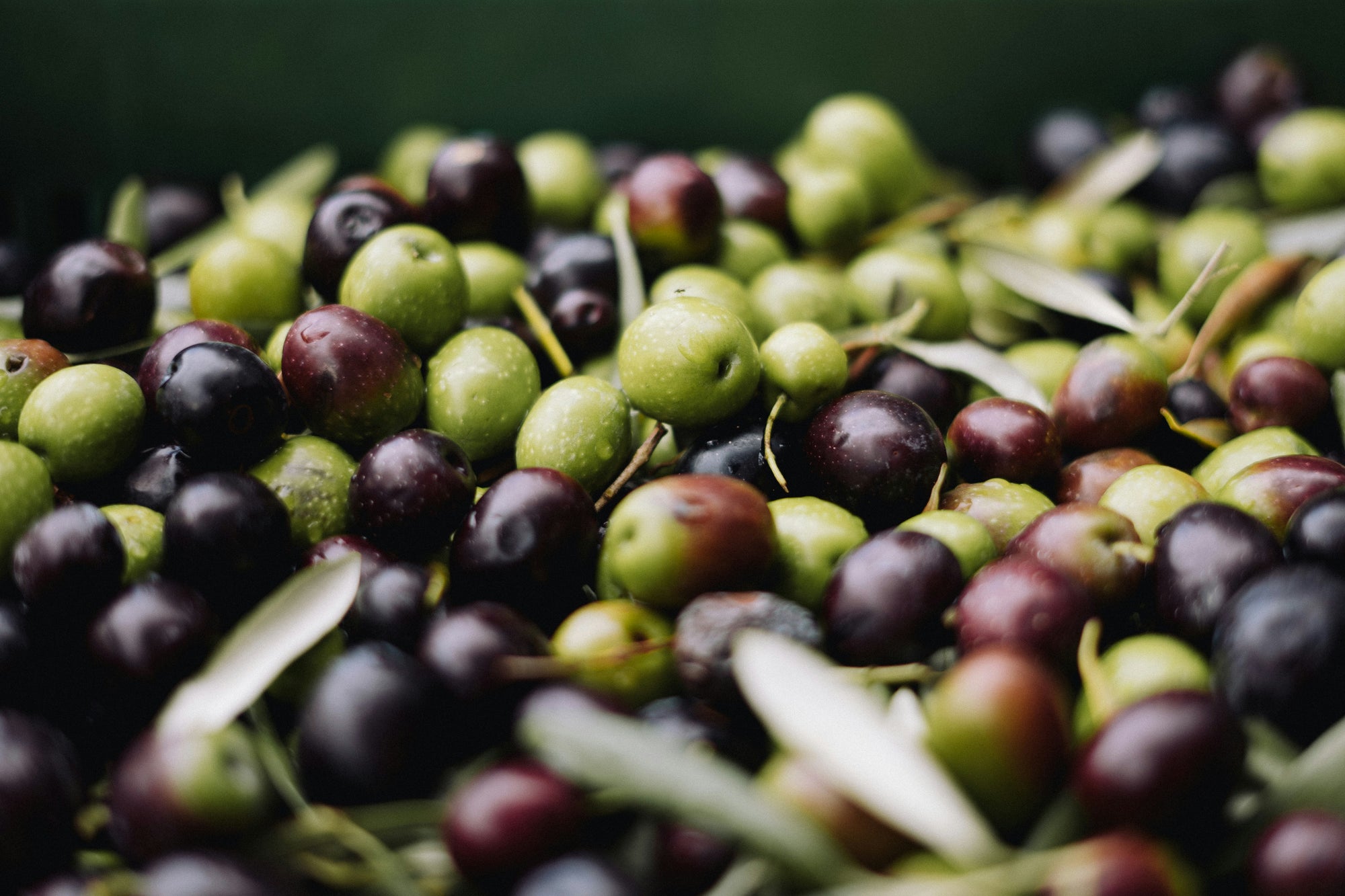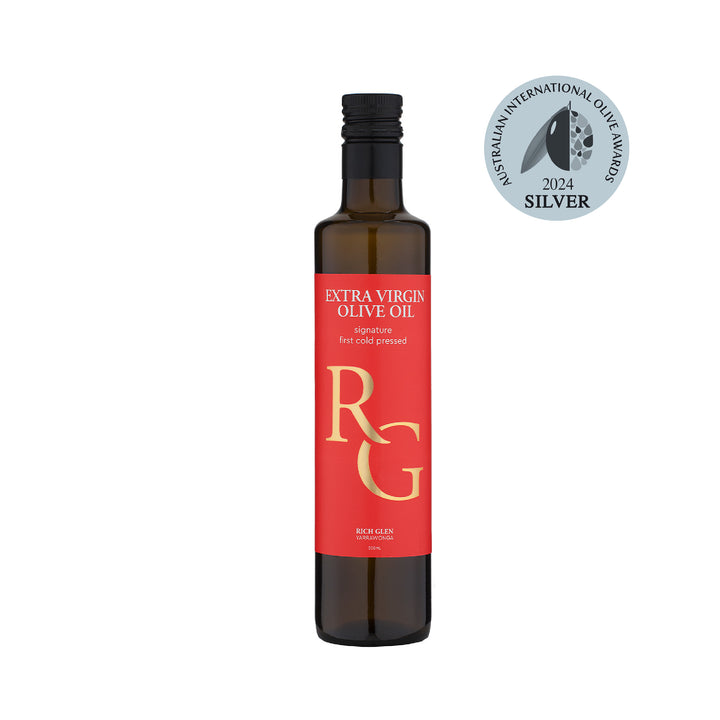If you’re a regular supermarket peruser, chances are you’ve come across a selection of oils bigger than your shoe collection. It’s overwhelming, we know! There is an abundance of varieties that differ in price, origin, flavour profile, colour and nutritional value - it’s no wonder you're confused about which one to use when.
As the resident Dietitian at Rich Glen - and a self-confessed oil enthusiast -, It is my duty to ensure you have access to credible nutrition information so that you can make educated decisions about what you consume and why.
With that said, this blog will take you through everything you need to know about the different types of olive and vegetable oils and which ones are most appropriate to use across a range of different cooking methods. It’s time to say goodbye to oil overwhelm, for good!
Let’s start with Olive Oil
You might think I’m bias, but I just *had* to kick-off with the greatest [and most nutritious] oil in the book. Firstly, olive oil is the ‘juice’ that is extracted from the olive fruit. There are three common types - light or extra light, regular and extra virgin olive oil (EVOO).
All three varieties vary in taste, nutritional value and smoke point, warranting them a unique role in different cooking processes. Lighter varieties of olive oil are more refined and therefore possess a mild flavour profile. This means they work well in robust dishes that may clash with stronger oils. They also have a high smoke point which makes them appropriate to use for frying. Whilst light olive oil is still high in heart-healthy ‘mono-unsaturated’ fats, it is lower in quality and contains the least amount of antioxidants.
Regular olive oil has a richer aroma than light olive oils and is slightly more nutritious. Whilst regular olive oil *may* still include a blend of refined oils, it is less refined than lighter varieties and can be used for most styles of cooking including frying, sautéing, roasting and baking. That’s correct - you can use olive oil as a healthier substitute to butter in your favourite baked recipes.
Extra Virgin Olive Oil is the highest quality olive oil and is associated with the most health benefits thanks to its fruitful antioxidant profile. Despite what you’ve heard, premium extra virgin olive oil like Rich Glen Oils can in fact be used for frying too. Given EVOO's beautiful rich flavour and superb aroma, it is however best used in salad dressings, as a finishing oil, drizzled over your favourite toast toppings, to coat roasted vegetables, in home-made dips and baked goods - and of course to elevate the flavour in meat, poultry and fish. It’s called the ‘gold standard’ of olive for good reason and *really* can be used for every cooking method under the sun!
Moving onto Vegetable Oils
Vegetable oils are extracted from various types of plants and seeds, commonly including a blend from canola, sunflower, corn palm or soybean.
Like olive oil, most vegetable oil blends contain a significant amount of heart healthy monounsaturated fats with little to no saturated fat. They do however contain slightly higher levels of omega 6 polyunsaturated fatty acids. Where they differ from olive oil is their low antioxidant profile. Vegetable oils fail to retain as many essential nutrients due to the higher level of processing they go through, and therefore aren’t linked to as many health benefits. Due to the refining, vegetable oils are also lighter in flavour and have a more mild aroma. They are appropriate to use for deep frying given their higher smoke point.
To wrap up our blog, I suggest opting for olive oil - especially EVOO when you can to not only elevate your food, but to support optimal health and wellbeing.
Try Rich Glen's signature range of olive oil below...
By Millie Padula - Dieititian Edition

Products used in this recipe
 American express
Apple pay
Ideal
Master
Paypal
Shopify pay
Unionpay
Visa
American express
Apple pay
Ideal
Master
Paypal
Shopify pay
Unionpay
Visa

